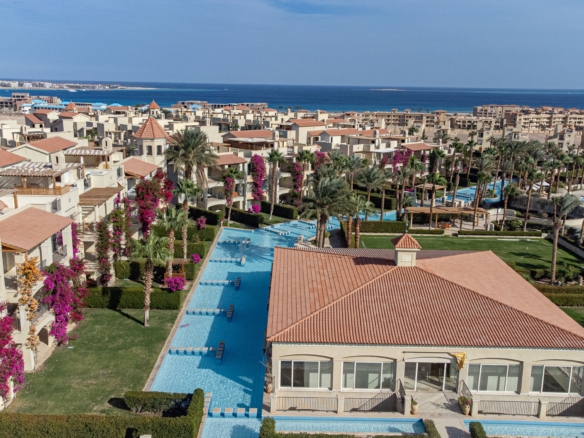Introduction to Cost of Living
The cost of living serves as a critical metric for individuals contemplating relocation or travel to a new city or country. It encompasses a comprehensive array of expenses that residents or visitors may incur on a daily basis, including but not limited to housing, transportation, food, healthcare, and entertainment. Understanding these costs can significantly impact one’s decision-making process and overall quality of life in a given location.
When evaluating the cost of living in different cities, it is essential to consider the various factors that contribute to these expenses. Housing often constitutes the largest portion of an individual’s monthly budget and varies significantly between urban areas. For instance, rental prices in Hurghada might differ markedly from those in Cairo, influenced by the availability of properties, neighborhood desirability, and local economic conditions.
Transportation costs further shape the overall cost of living, as they comprise expenses related to public transit, fuel, and vehicle maintenance. In cities like Hurghada and Cairo, the availability and efficiency of transportation systems can play a crucial role in influencing these costs. Additionally, food prices can fluctuate based on local markets, agriculture, and import rates, which warrants careful consideration for anyone aiming to maintain a balanced diet without overspending.
Entertainment and leisure activities too contribute variously to one’s cost of living. Options available in Cairo may present a wider selection than those in Hurghada, thereby affecting one’s budgeting for social experiences and recreational endeavors. While both cities provide unique attractions and cultural offerings, the costs associated with these luxuries may differ, reflecting on the overall affordability for residents and travelers alike.
By assessing these factors holistically, one can gain a clearer view of the cost of living in both Hurghada and Cairo, ultimately aiding in informed decision-making for potential relocators and visitors.
Housing and Accommodation Costs
When considering the housing market in Egypt, it is essential to compare the accommodation costs in both Hurghada and Cairo, as these two cities offer distinct experiences and pricing structures. Hurghada, renowned for its coastal living and tourism, generally provides more affordable rental options compared to Cairo, which is characterized by its urban sprawl and economic opportunities.
The average rental prices for apartments in Hurghada can vary depending on the location and amenities offered. One-bedroom apartments typically range from 3,000 to 5,000 EGP per month, while larger two-bedroom units may fall between 5,000 and 8,000 EGP. In contrast, the rental prices in Cairo are significantly higher, where a similar one-bedroom apartment in a central location could cost approximately 6,000 to 10,000 EGP, with two-bedroom apartments averaging between 10,000 and 15,000 EGP. This notable difference underscores the impact of location within each city on housing costs.
In terms of property ownership, the costs associated with purchasing real estate in Hurghada are also relatively lower. The average price per square meter for a property can be as low as 9,000 EGP, particularly in tourist-friendly areas. Conversely, in Cairo, the average price per square meter rises substantially, often exceeding 15,000 EGP, especially in prime districts. These figures illustrate the economic environment’s influence on both renting and buying properties in these cities.
The availability of different types of housing further complements the comparison. Hurghada offers a range of apartments, villas, and holiday homes catering to expatriates and locals alike, while Cairo presents an extensive array of residential options, from modern high-rises to traditional houses. Ultimately, understanding these housing and accommodation costs in both Hurghada and Cairo is crucial for potential residents and investors, as it directly influences their lifestyle choices and financial commitments.
Transportation and Utility Expenses
When examining the cost of living in Hurghada compared to Cairo, transportation and utility expenses are essential components that significantly influence the overall budget of residents. In terms of transportation, both cities offer various modes of travel, including public transport, taxis, and private vehicle ownership. Public transportation in Hurghada is relatively affordable, with bus fares typically costing only a few Egyptian pounds, providing a cost-effective solution for daily commuting. In contrast, Cairo’s extensive metro system also offers economical options, with fares generally set at a low flat rate, facilitating access across the city.
Taxi services in both cities present another transportation cost consideration. In Hurghada, taxis are readily available, and fares can be negotiated but typically average around 10 to 15 EGP for short distances. In Cairo, taxis and ride-hailing services like Uber are commonly used, with prices varying based on distance and time of day. However, on average, taxi fares in Cairo are slightly higher compared to those in Hurghada, making public transport a more economical choice for numerous residents.
Vehicle ownership entails additional expenses, including maintenance and fuel costs. As of October 2023, fuel prices in Egypt are relatively similar across both cities; however, local variations may cause minor discrepancies. It is important to note that owning a vehicle comes with expenses such as insurance, registration, and parking fees, which may burden residents’ finances, particularly in Cairo’s congested urban environment.
Utility expenses, including electricity, water, and internet services, also play a crucial role in overall living costs. In Hurghada, utility bills are generally reasonable, with average monthly costs significantly lower than those in Cairo. For instance, a typical household in Hurghada may spend around 600 EGP on utilities, while similar expenses in Cairo can range from 800 to 1,200 EGP. Internet services are increasingly available in both locations, with costs being relatively comparable, though promotions and packages might differ based on service providers.
Food, Dining, and Entertainment Costs
When examining the cost of living in Hurghada compared to Cairo, food, dining, and entertainment costs play a significant role in shaping daily expenses. In Hurghada, the cost of groceries tends to be notably lower than that in Cairo, primarily due to the availability of locally sourced produce and seafood. For instance, essential items such as fruits, vegetables, and dairy products can be purchased at more affordable prices in Hurghada’s markets and grocery stores. This trend contributes to a more budget-friendly grocery shopping experience for residents and visitors alike.
Dining out in Hurghada is also generally less expensive than in Cairo. Local restaurants offer a variety of cuisines, with traditional Egyptian food being particularly popular. A meal at an inexpensive restaurant in Hurghada might cost around 50 EGP, while the same meal in Cairo could be approximately 70 EGP or more, depending on the establishment’s location and prestige. For a more upscale dining experience, both cities offer a variety of high-end restaurants, but Hurghada may still present lower prices overall for similar quality dishes.
Entertainment costs, which include options such as cinema tickets, parks, and recreational activities, reveal additional differences between the two cities. In Hurghada, a cinema ticket may cost around 75 EGP, often seen as a standard price across various venues. In contrast, Cairo’s entertainment costs can be higher, with movie tickets averaging 100 EGP. Outdoor activities such as beach access and watersports in Hurghada enhance the appeal of the city but may carry additional fees. Overall, while both cities offer various entertainment options, Hurghada stands out as a more economical choice for those seeking leisure activities.
Ultimately, the comparison of food, dining, and entertainment costs between Hurghada and Cairo suggests that residents and tourists in Hurghada may enjoy a more economical lifestyle without compromising on quality and variety.





Join The Discussion